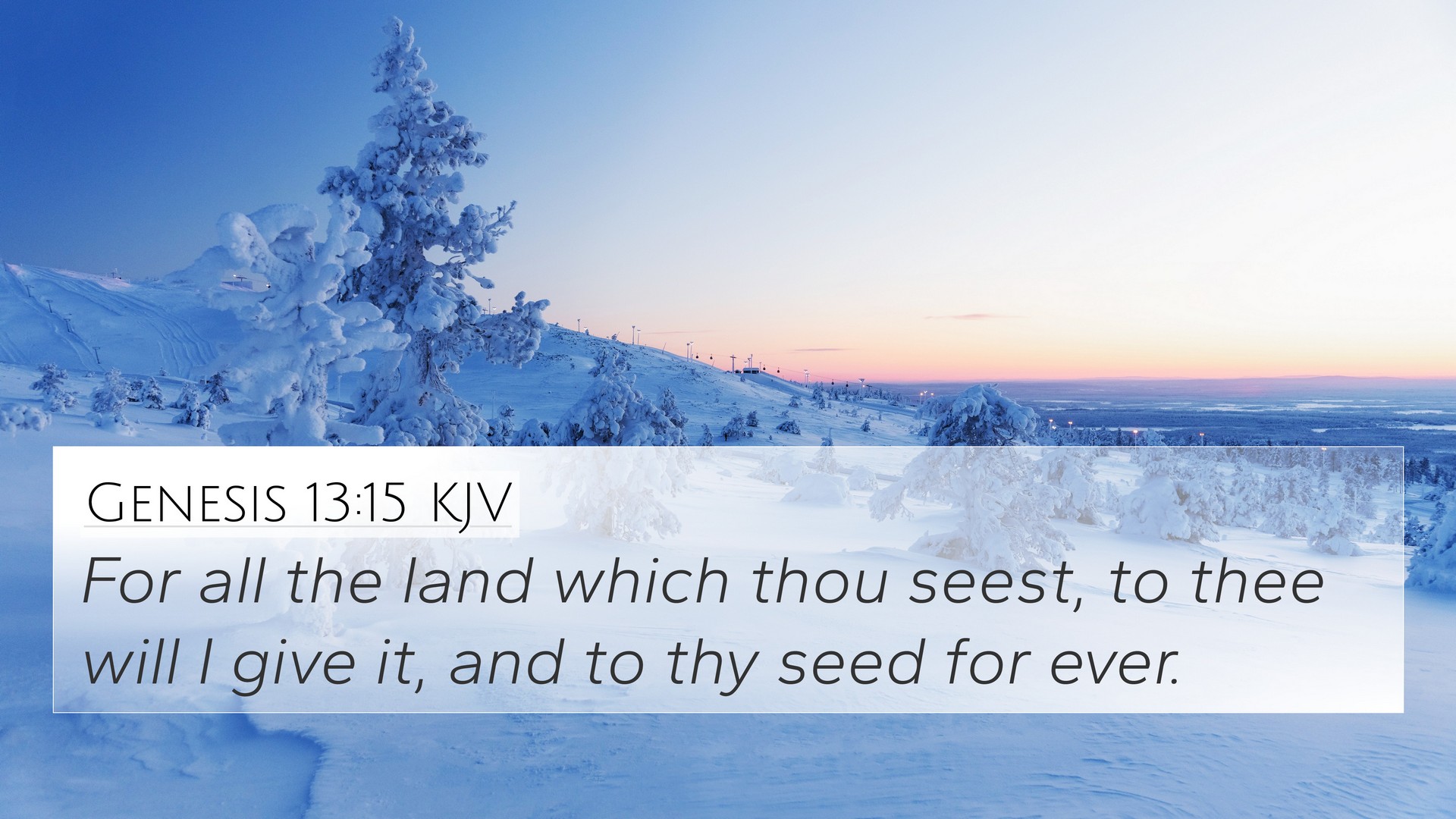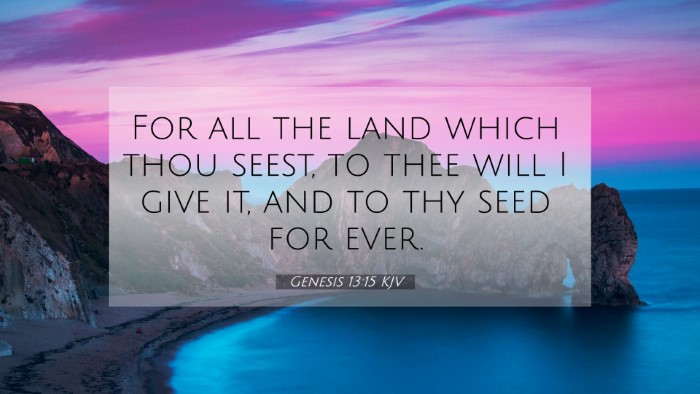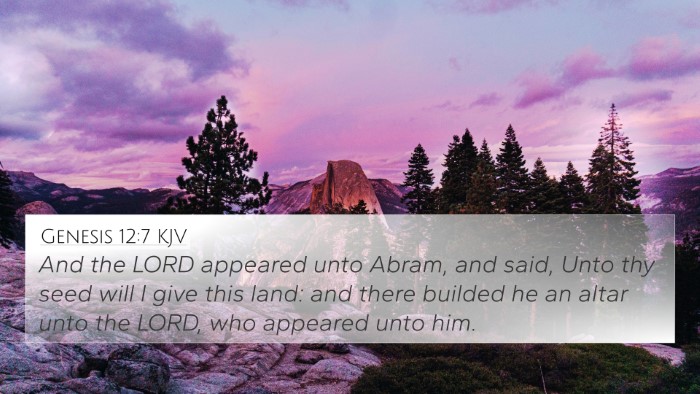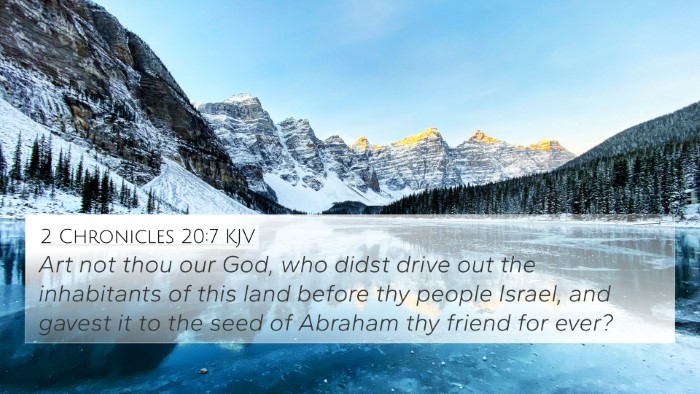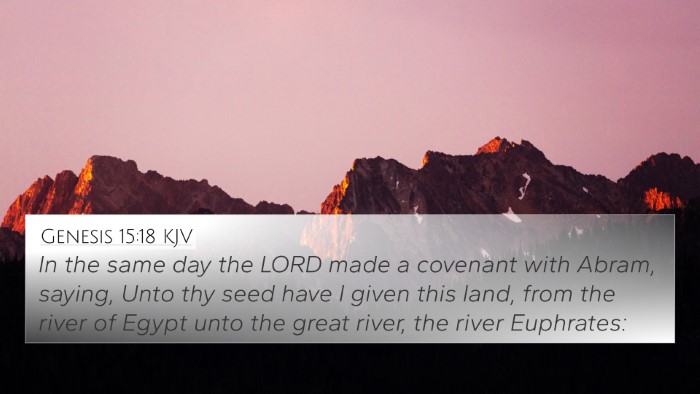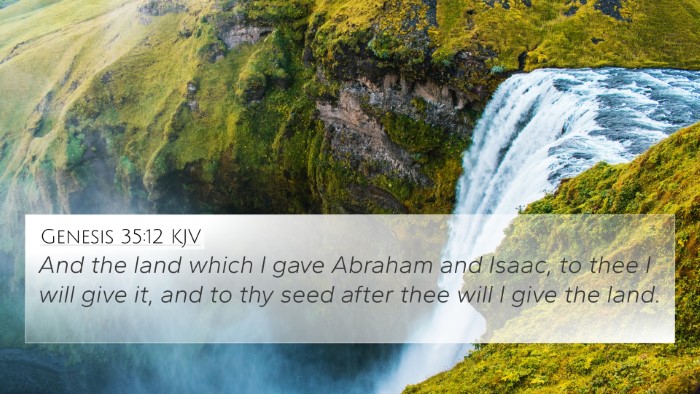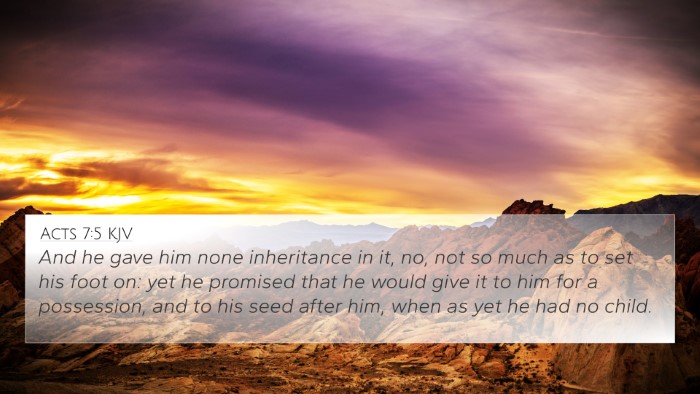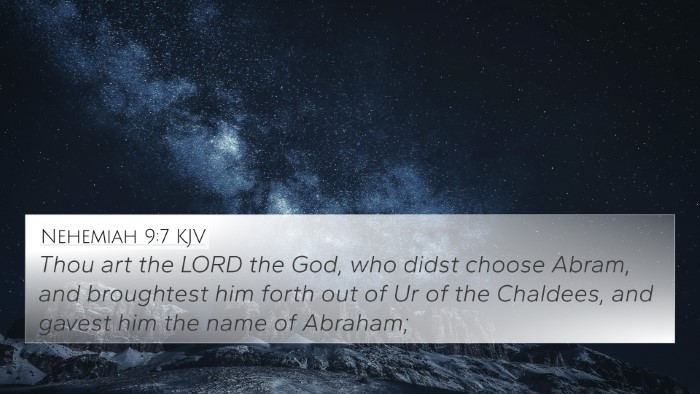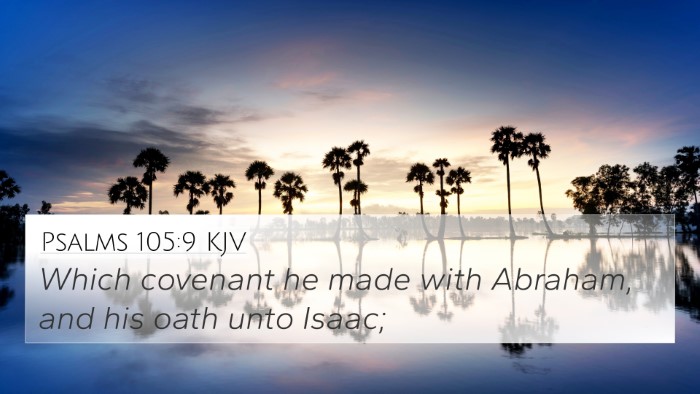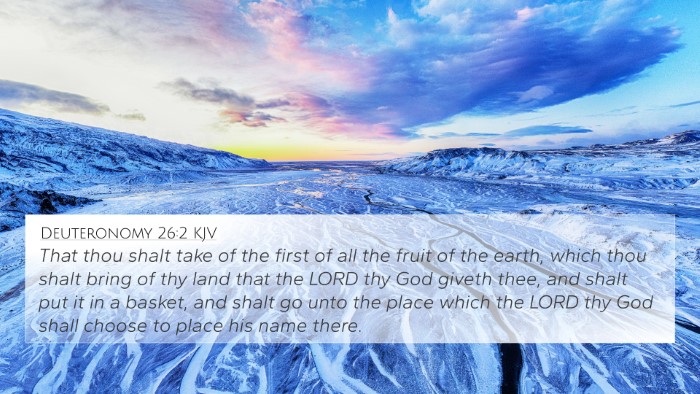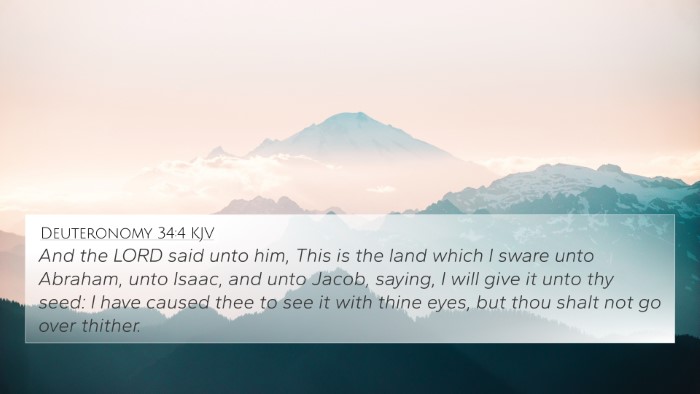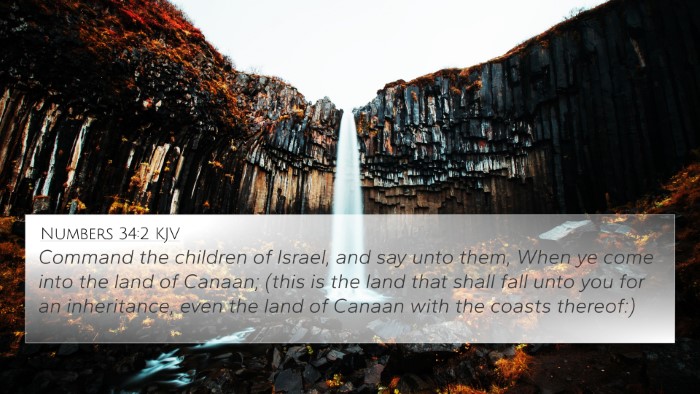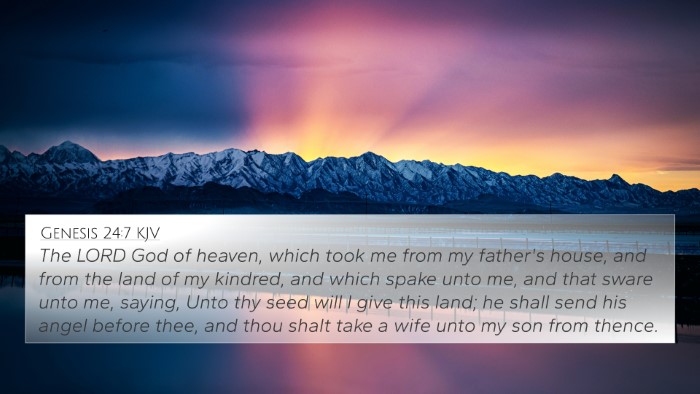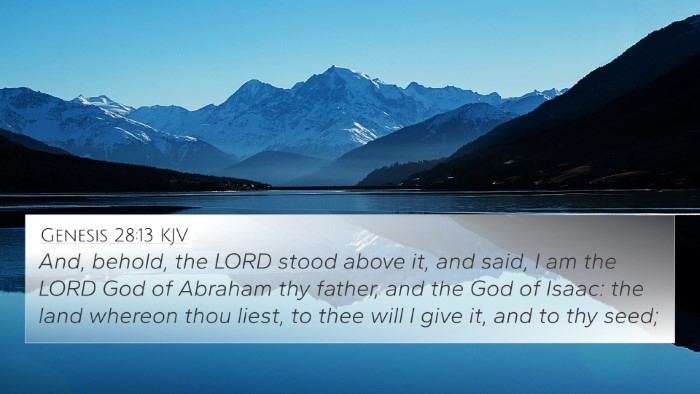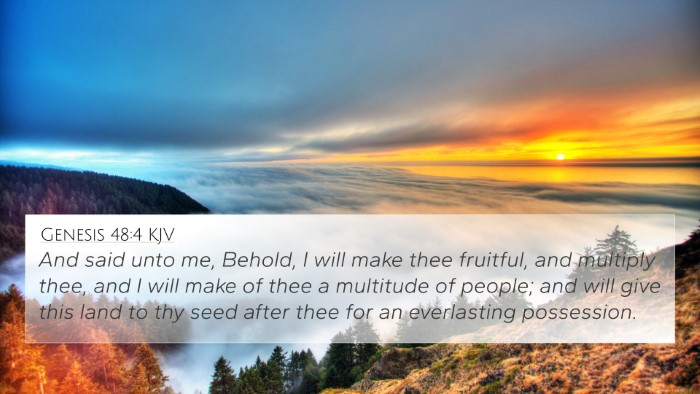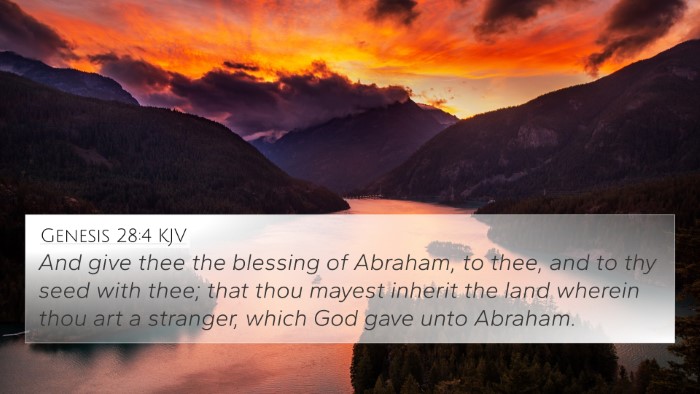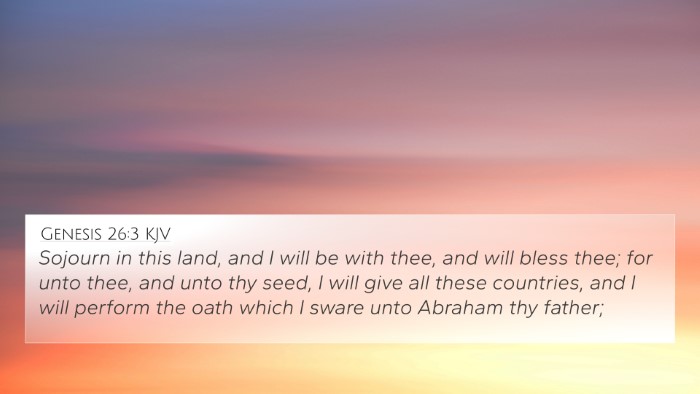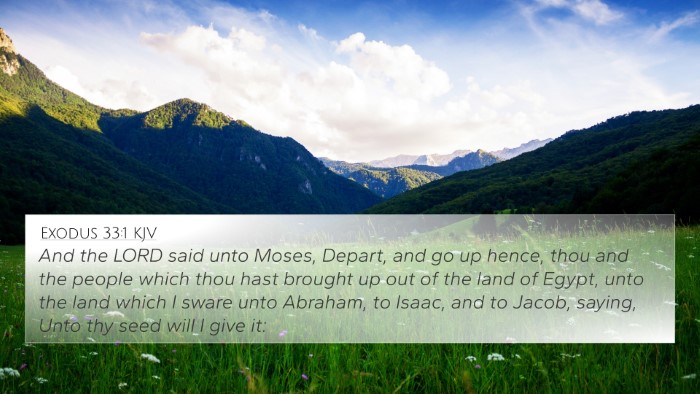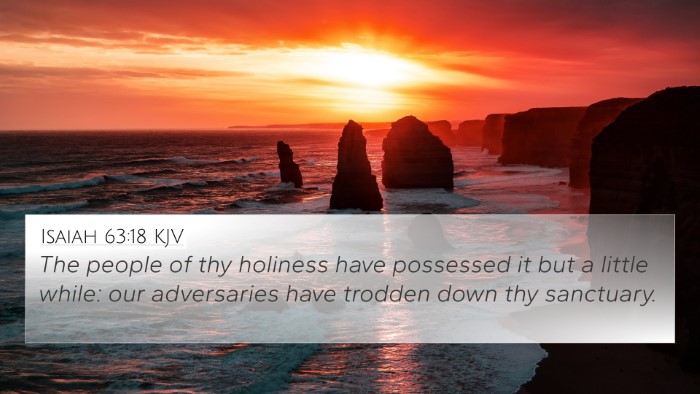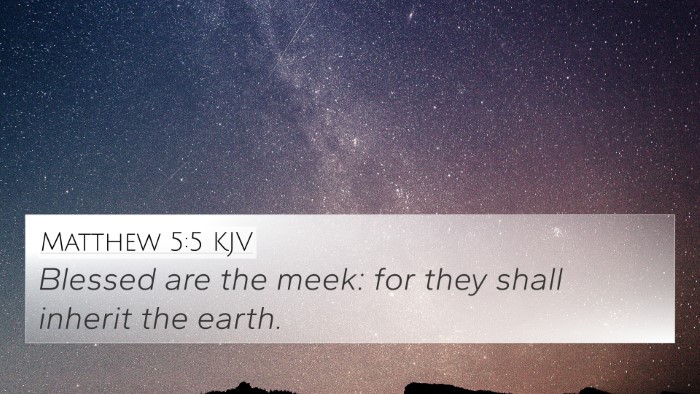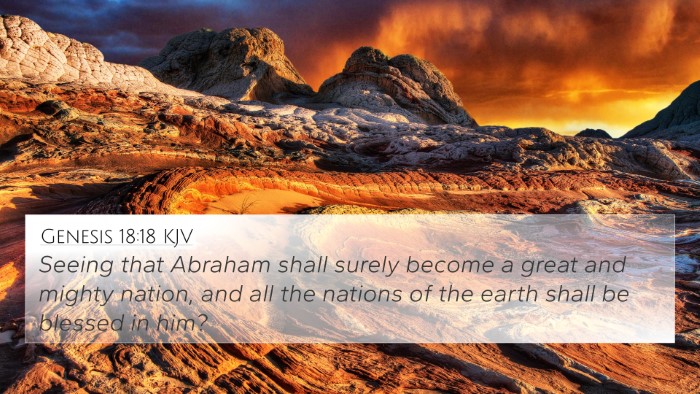Understanding Genesis 13:15
Genesis 13:15 states: "For all the land which thou seest, to thee will I give it, and to thy seed for ever." This verse unfolds a significant promise from God to Abraham, highlighting themes of land, lineage, and divine favor.
Verse Context and Significance
The chapter recounts the separation of Abraham and Lot due to the growth of their possessions. God’s promise to Abraham is framed within the context of Abraham’s faith and obedience. As we examine this scripture, we find connections not only within the narrative but across the Bible, establishing thematic ties that resonate through different parts of Scripture.
Key Themes and Insights
- Divine Promise: God's unconditional promise to Abraham emphasizes His sovereignty and faithfulness.
- Inheritance: The promise includes both the land and the future generations, reinforcing the importance of legacy in biblical terms.
- Faith and Obedience: Abraham's actions preceding this promise demonstrate the significance of faith as a precursor to divine blessing.
Bible Verse Cross-References
In understanding Genesis 13:15, it’s essential to explore various Bible verse cross-references. Here are notable related verses:
- Genesis 12:7 - "And the LORD appeared unto Abram, and said, Unto thy seed will I give this land..."
- Exodus 32:13 - "Remember Abraham, Isaac, and Israel, thy servants, to whom thou swarest by thine own self..."
- Deuteronomy 1:8 - "Behold, I have set the land before you: go in and possess the land..."
- Joshua 1:3 - "Every place that the sole of your foot shall tread upon, that have I given unto you..."
- Psalms 105:10 - "And confirmed the same unto Jacob for a law, and to Israel for an everlasting covenant..."
- Romans 4:13 - "For the promise, that he should be the heir of the world, was not to Abraham, or to his seed, through the law..."
- Hebrews 11:9-10 - "By faith he sojourned in the land of promise, as in a strange country..."
Comparative Bible Verse Analysis
When engaging in comparative Bible verse analysis, we notice that the promise made to Abraham extends throughout biblical history, influencing both the Old and New Testaments. Abraham is often referenced as the father of faith, highlighting the importance of his trust in God, which is rewarded through divine promise aligned with his descendants.
Connections Between Bible Verses
Genesis 13:15 serves as a pivotal link connecting numerous biblical themes:
- Covenant: The relationship God establishes with Abraham is fundamental to understanding the covenants in the Bible.
- Faith of Abraham: Romans 4 expounds on Abraham's faith as a model for righteousness, linking back to this moment.
- Promise and Fulfillment: The land promised in Genesis is frequently referenced in later texts, showcasing God's faithfulness in fulfilling His word.
Inter-Biblical Dialogue
The notion of inter-Biblical dialogue is significant when exploring how Genesis 13:15 interacts with other scriptures. Its implications impact the narrative of the Israelites and their journey to the promised land, as well as the New Testament's assertions of inheritance through faith in Christ.
Thematic Bible Verse Connections
When assessing the thematic Bible verse connections, we see that the themes of promise, land, and lineage are prevalent. Genesis 13:15 encapsulates the essence of God's intentions for His people, linking it to numerous theological reflections that emerge in later biblical texts:
- Promised Land: Reflects back to the land given to Abraham and its eventual fulfillment in Israel's history.
- Faithfulness of God: The irrevocable nature of God’s promise is a theme reiterated throughout scripture.
- Spiritual Inheritance: The New Testament speaks of believers' inheritance as children of Abraham through faith (Galatians 3:29).
Tools for Bible Cross-Referencing
Using the right principles and tools for Bible cross-referencing allows for deeper scripture study. Utilizing a Bible concordance can assist in identifying related themes, while a Bible cross-reference guide aids in revealing intricate connections that enrich your understanding of Biblical text.
How to Use Bible Cross-References
Understanding how to use Bible cross-references involves a few steps:
- Identify a primary verse (e.g., Genesis 13:15).
- Look for cross-references in your Bible or concordance.
- Study each reference to understand thematic connections.
- Document how the verses reinforce or expand your understanding of the main verse.
Conclusion
Genesis 13:15 stands as a pivotal verse that invites readers into a discussion of promise, faith, and inheritance. By exploring cross-referencing biblical texts, believers can gain a holistic understanding of God's authoritative word throughout scripture. The rich tapestry of related verses encourages deeper study and appreciation of the divine narrative at play.
